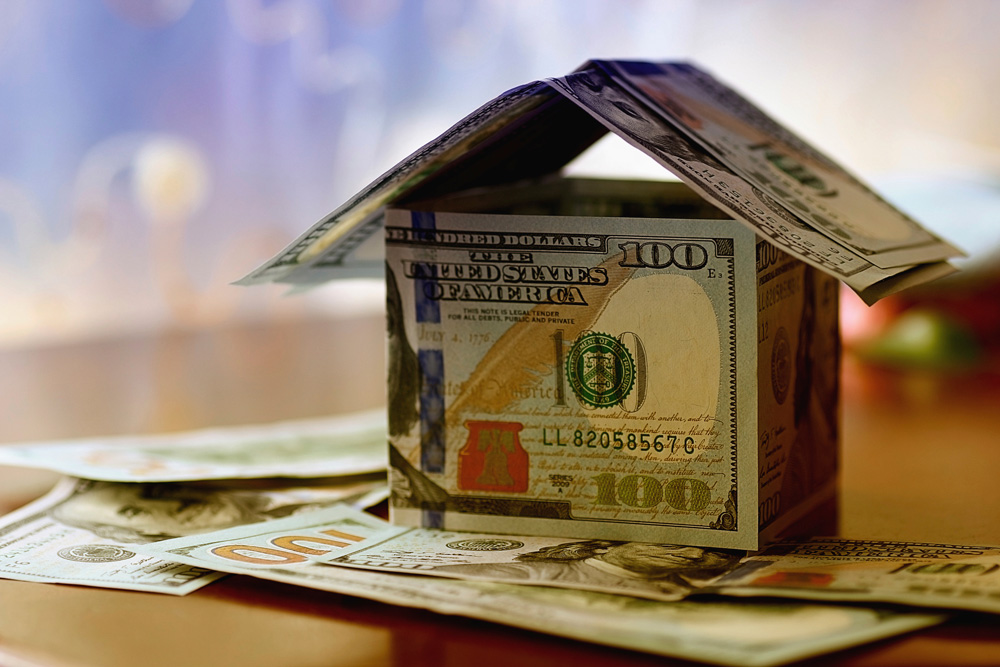There’s little argument that the real estate market right now is hot. That’s good news for real estate investors, but it’s also bad—or let’s instead call it “challenging”—news.
While the level of activity varies among different markets, we are seeing one of the highest residential real estate markets since back in 2006, pre-recession. The market in which I operate—Dallas, Texas—is typical of many others that are seeing record-level real estate activity on the residential side, with prices increasing to levels never seen before.
That leads to a question that many individuals ask me: “Hey, I am thinking about getting into real estate investing; is now a good time? Do I enter when the market is good, or do I wait until the market softens or calms down a little bit?” It’s a great question. That takes us to our headline: The good news is that real estate is booming, but the bad news is that real estate is booming.
Let’s talk about some of the challenges that exist today for real estate investors in this driving real estate market. How will that impact you as an individual, as a private investor who is considering sticking your toe in the water and starting to do some real estate investing? Maybe we can at least give you an idea of what the water feels like, so you are comfortable diving in as a real estate investor.
Competition for real estate investment properties is at an all-time high
First and foremost, let’s talk competition. Competition among real estate investors nationwide is at an all-time high. This is true whether the investor is a private individual, like most of our audience, or a large institutional investor like a Wall Street hedge fund. The markets are flooded with residential real estate investors right now. It begs the question, “Why?”
There are many reasons, including the fact that many individuals, both private and institutional investors, are discouraged with the traditional stock market approach to investing. They are discouraged about limited returns and the unpredictable nature of it. They are just hungry and looking for new alternatives to invest their money. With that, you see a lot of investors who are starting to really recognize real estate as a very promising, new, up-and-coming or even stronger asset class than it has ever been considered before. Investing in real estate has risen to the same level of notoriety and performance as some of these more traditional long-standing asset classes like stocks and bonds and other money market instruments. That has attracted a lot of investors.
We would be remiss if we didn’t mention the almost a faddish (for lack of a better word) popularity of residential real estate investing that we see today. By no means am I implying that it is a bad thing. Let’s face it—residential real estate investing is popular. You cannot turn on your television today without scrolling through and finding a show about house flipping. No matter what time of the day, no matter what day of week, it is incredibly popular. There are websites, seminars, magazines, television shows, and there have even been several movies. And that popularity has also contributed to the flood of competition in the market.
So what does that mean? Well, homeowners are barraged with offers to buy their homes. When you get into real estate investing, beware. You will not be the only ones seeking to buy off-market, distressed real estate for investment purposes. I can tell you from my own experience owning many rental homes in the Dallas market, there is not a single day that goes by that I do not receive a piece of direct mail from an investor soliciting to purchase one of my rental properties. It happens every single day, both at my private residence and at the office. As little as two years ago, I was receiving maybe a piece of mail a month to purchase one of our properties, and now it happens daily. The competition is intense. So many investors are out there doing whatever they can to find distressed sellers in the market.
So what do you do as an investor when you are jumping in and getting ready to start? Well, be prepared. You are going to have to really lean in to your advertising. Gone are the days of leaning back and scouring MLS from the comfort of your favorite easy chair to find distressed real estate. You are going to have to lean forward—increase, improve and innovate your advertising. As we have talked about in the past, that is direct mail, TV, radio, billboards, Internet and newspaper advertising. You have to do everything that you can think of and go everywhere that you can think of to reach distressed sellers.
And when you work that hard to get those leads, your follow-up is more critical than ever, because once you do access those leads and engage them, you will find that a lot of other people also are accessing them and engaging them. Who will get their attention? It’s going to be the one who is present, professional and who follows up and communicates. That’s the investor who is going to develop the relationship and ultimately purchase the property.
Inventory is tight because competition is so fierce
Second, let’s talk about inventory in this excellent residential real estate market of today. It is no secret that inventory is tight. Why? Because competition is tight. Investors are gobbling up residential real estate as investment properties all over the country, and that has caused inventory to dwindle significantly.
Another reason for the tight inventory is the decline in foreclosures nationwide. Also gone are the days of shopping foreclosures, short sales and picking up discounted real estate. Granted, it’s probably good that those inventories have gone down. Fewer people are seeking short sales, and thankfully fewer people are in foreclosure positions. But unfortunately, that makes it tough for those of us real estate investors who are seeking discounted real estate. We are now competing in many cases with owner-occupiers who want to buy the property so they can live in it. We want to buy it in order to invest and either rent or fix-and-flip.
It is increasingly challenging to find these distressed deals. Many investors—including me—are reacting by expanding our markets and heading into less-populated, rural markets that are surrounding our metropolitan markets. We are trying to find niches and geographies where investors aren’t as plentiful, and where we can find inventory. I have seen colleagues literally pick up their shingle and move their entire business to these smaller rural markets in order to get to areas where inventory exists.
So I encourage those who are thinking about getting into real estate to understand the inventory in your particular geography and your particular market. Seriously consider seeking out or maybe entering a more remote market that is still accessible to you so you can work where the competition won’t be as fierce and the inventory will be more plentiful.
It’s no surprise that prices also have risen
Finally, and inevitably, let’s talk about prices. Competition is high, inventory is low, and it is no surprise that prices are up. Prices are at all-time high in many markets nationwide. We are all feeling it. Even if you are not an investor, you are probably feeling it. You are probably celebrating the fact that the home you are living in is appreciating rapidly, which is wonderful if you are not an investor. Or if you are an investor, you could be celebrating the fact that your investment properties are appreciating rapidly, or you are even perhaps selling them at prices you never thought you would achieve.
For the most part nationally, residential real estate prices in most markets have either achieved or exceeded the 2006 price levels that we saw prior to the housing crash in 2007 and 2008. We have rebounded and we have rebounded nicely. The markets are even traveling past those earlier record high market values, which is exciting.
Why is this happening? The competition is high, the inventory is low, but even outside of the immediate realm of the investor, we are seeing broader economic factors like higher-end growth increasing across the nation. More people are getting jobs, more people are getting better jobs, and that increases people’s spending power and their ability to buy and purchase homes, which in turn causes demand to increase, along with prices.
We are also seeing lower mortgage rates, so it is becoming easier to fund the purchase of a home with a traditional mortgage. More people are comfortable with the lower mortgage rates we are seeing today and they are diving into home ownership as a result. Once again, as they drive up demand, prices are increasing.
As a residential real estate investor, I am paying more for homes than I ever have before. This week—and right now it is April 2016—I went and revisited a house that I initially considered buying back in 2013. The seller contacted me three years ago, but I did not purchase the house at that time. We just couldn’t come to an agreement on a price. Lo and behold, the seller contacted me again a couple weeks ago, and this time I did purchase that house. My offer was 28 percent greater than it was three years ago—for the exact same house. That house had increased rapidly in value. My buying has become more aggressive as I have faced some of these headwinds, so to speak, of this hot real estate market. Also, I am more comfortable on the back end when I go to sell this property. That’s the benefit of a hot market. Prices may be higher, purchasing may be more difficult, but selling becomes easier and the price at which you do sell becomes greater.
How can you prepare yourself to succeed?
What would I do as a residential real estate investor with respect to pricing to prepare my business and myself for success? I would make sure that I have my capital resources in line. Houses aren’t as cheap as they were before. You are going to need more money to buy and secure them, and you are going to have to move quickly in these tight inventories and competitive markets.
Make sure you have your capital lined up, whether it’s your own money, or you are borrowing money. Make sure that you have enough, and that you have quick and easy access so that you can be successful at buying those properties at the prices that the market is demanding before somebody else steps in front of you and buys it.
Finally, back to our original question, the market is good, so is investing good? Yes, it is good. Stick to your advertising, define you market, know your exit strategies, secure your capital, and you will be fine. You will have great results during this great time for real estate investors.
Listen to Kevin’s podcast here:
























0 Comments